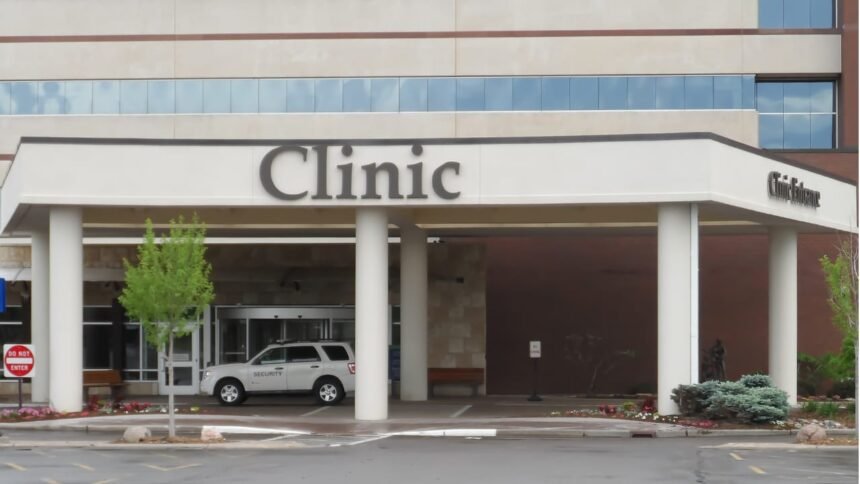If you’re considering entering a rehab program for substance abuse, you’re taking a brave and important step toward recovery. With so many options available, finding the right rehab can feel overwhelming.
This guide is designed specifically for people seeking treatment and will help you understand what to look for, why accreditation and staff credentials matter, and how to decide if a center is right for you.
Understanding Your Treatment Needs
Every recovery journey is unique. Start by reflecting on your specific needs:
- Which substances are you struggling with? (Alcohol, opioids, stimulants, etc.)
- Do you have any mental health concerns? (Many people with addiction also experience issues like depression or anxiety—this is called a dual diagnosis.)
- What are your goals for treatment? (Detox, short-term sobriety, long-term recovery, etc.)
- What type of program do you want? (Residential/inpatient, outpatient, intensive outpatient, etc.)
Steve Carleton, an Addiction Specialist and Chief Clinical Officer at Porch Light Health, says:
“The most successful recoveries start when people feel understood and supported. Look for a program that takes the time to learn about your story and tailors treatment to your needs.”
Why Accreditation and Licensing Matter
Accreditation means a rehab center has met strict standards for care, safety, and treatment quality. In the U.S., the main accrediting organizations for addiction treatment are The Joint Commission and CARF (Commission on Accreditation of Rehabilitation Facilities).
Key reasons to choose an accredited facility:
- Quality care: Accredited centers use evidence-based treatments and best practices.
- Safety: They meet high standards for patient safety and privacy.
- Insurance coverage: Many insurance companies require accreditation for coverage.
Licensing is also crucial. Make sure the facility is licensed to provide addiction treatment in your state. Michael Villarreal, CADC-II, Neuropsychologist and CEO of Tres Vistas Recovery, clarifies further:
“Getting licensed and accredited helps guarantee that rehab centers are safe, caring places where people can get expert help and treatments that work. While accreditation shows a commitment to continuous quality development and transparency, licensing guarantees legal operation and compliance with basic rules.
Together, they give patients and their families the confidence that care is compassionate and effective, offering real hope, lowering risks, and lighting the way toward a meaningful recovery.”
The Importance of Qualified Staff
The professionals at a rehab center play a vital role in your recovery. Look for centers with a team that includes:
- Licensed addiction counselors
- Medical doctors and psychiatrists
- Licensed therapists and social workers
- Nurses and support staff
A reputable center will be transparent about their staff’s credentials and experience. Don’t hesitate to ask about qualifications and ongoing training.
What to Look for in a Rehab Facility
When evaluating rehab centers, consider the following:
- Evidence-Based Treatments: Look for therapies proven to work, such as cognitive-behavioral therapy (CBT), motivational interviewing, and medication-assisted treatment (MAT).
- Personalized Care: Your treatment plan should be tailored to your specific needs.
- Continuum of Care: Good centers offer a range of services, including detox, inpatient or outpatient treatment, and aftercare or alumni programs.
- Safety and Comfort: The facility should be clean, safe, and comfortable. If possible, visit in person or request a virtual tour.
- Insurance and Payment Options: Check if the center accepts your insurance and ask about payment plans or financial assistance.
- Success Rates and Reviews: Reputable facilities will share their outcomes and have positive feedback from former clients.
- Inclusivity and Cultural Competence: Choose a center that welcomes people of all backgrounds, including LGBTQ+ individuals and people from different cultures.
Red Flags to Watch Out For
Be cautious if you notice:
- No accreditation or licensing
- Unclear or questionable staff credentials
- One-size-fits-all treatment plans
- Pressure to enroll or promises of a “cure”
- Lack of transparency about costs, treatment methods, or outcomes
Dr. Brooke Keels, Chief Clinical Officer at Lighthouse Recovery, further advises:
“Legitimate addiction treatment facilities prioritize clinical structure and transparency because recovery requires psychological safety and trust to be effective. Centers that provide vague descriptions of their therapeutic methods or refuse to share detailed staff credentials create an environment of uncertainty that does not bode well for patients with anxiety.
Also, do not fall for high-pressure sales tactics and financial incentives because they exploit the desperation families feel.”
How to Get Started
To begin your search:
- Use SAMHSA’s National Helpline (1-800-662-HELP): This free, confidential service can help you find treatment and answer your questions.
- Visit FindTreatment.gov: This government website lets you search for licensed treatment centers near you.
- Ask for recommendations: Consult your doctor, therapist, or trusted friends and family.
- Contact centers directly: Call or email to ask about their programs, staff, and accreditation.
What to Expect When You Call
When you contact a rehab center, expect questions about your substance use, mental health, living situation, and goals for treatment. They should explain their treatment approaches and answer your questions honestly.
The Role of Family and Community
Recovery is often easier with support. Many rehabs offer family therapy and education to help your loved ones understand addiction and support your recovery.
Key Statistics and Facts
- Only about half of addiction treatment facilities in the U.S. are accredited.
- Accredited facilities are more likely to be covered by insurance and to provide high-quality, evidence-based care.
- Personalized treatment plans and a continuum of care improve recovery outcomes.
- Support from family and community is a key factor in long-term recovery.
Final Checklist
Use this checklist to help you choose the best rehab for you:
- Accredited and licensed
- Qualified and experienced staff
- Evidence-based treatments
- Personalized care
- Continuum of care, including aftercare
- Safe, clean, and comfortable facility
- Accepts your insurance and offers transparent pricing
- Inclusive and welcoming to all
- Provides data on treatment outcomes and client satisfaction
Need Assistance?
Choosing the right rehab is a significant decision, but you don’t have to do it alone. Use available resources, ask questions, and trust your instincts. The best rehab centers treat you with respect, offer personalized care, and support you throughout your recovery journey.
If you need help, please remember to call SAMHSA’s National Helpline at 1-800-662-HELP or visit FindTreatment.gov to find a licensed treatment center near you.








